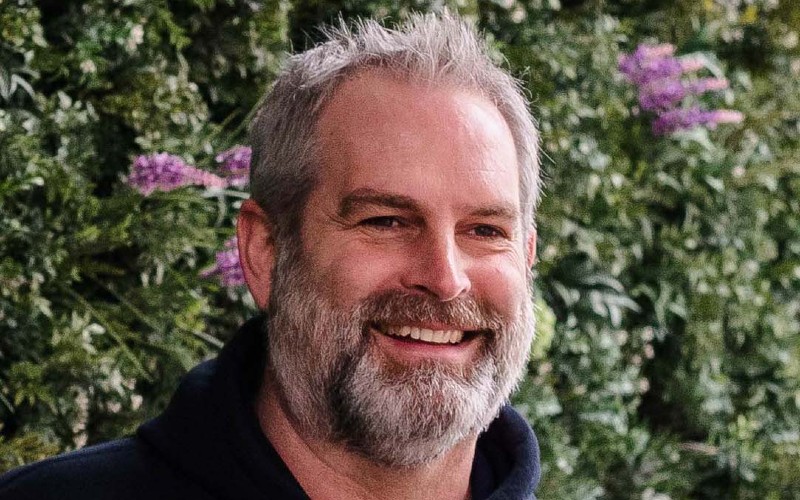Building a business in the medical arena is far from straightforward.
MedTech ventures can start out with a vision of transforming an area of medicine, only for science and clinical data to push them back – or in another direction.
Founded in 2015, Gendius set out to build a remote management platform for diabetes – intellin – after Chris Genders developed Type 2 diabetes. “He had an idea that he wanted to do something in that space to try and make the journey easier for others, because he’d found it really tough,” his co-founder Rory Cameron tells BusinessCloud.
“If you ask most people with diabetes, they know what their blood sugar levels are – but not their last cholesterol check results or serum creatinine.”
Creatinine is a waste product in the blood that comes from the muscles and is filtered out by healthy kidneys through urine; the level of serum creatinine is based on a blood test that measures the amount of creatinine in the blood. Factors such as these are important in managing a healthy existence when living with diabetes, yet effectively disregarded by them.
“The platform was built to connect to all sorts of devices – blood pressure cuffs, scales, glucose meters – to capture data, connect to the electronic health record and relay it back to the clinician,” continues Cameron.
“At that time, the available platforms were like rearview mirrors: they would enable you to diarise what you’d eaten, how much insulin you’d taken, how much exercise you’d done, but there wasn’t anything out there helping to warn you about your risks.”
Diabetic complications
With growing longitudinal data, the team then looked for signals of why certain people with diabetes go on to develop kidney disease, heart failure, lower-limb amputation, blindness and other complications.
“If you were diagnosed with chronic kidney disease, and you had diabetes, there was nothing really that could be done about it,” says Cameron. “People would say: ‘If only someone had explained to me that diabetes would affect my kidneys then I could have done something about it’.
“I don’t doubt that some of those patients were told of the risks; but the difficulty with diabetes is it affects almost everything. So trying to hold all that information on what is going to affect you is extremely difficult.”
Cameron will join fellow health technology entrepreneurs on a BusinessCloud panel at pro-manchester’s HealthTech conference 2022 on Friday 9th December – click below to register, using the discount code BusinessCloud20 for 20% off the ticket price
HealthTech Conference 2022 – data innovation in medicine & healthcare
Breakthrough
The breakthrough came around two years ago when pharmaceutical companies found that SGLT2 inhibitor drugs – used to help control blood glucose in diabetics – also seemed to protect the kidneys and heart.
Gendius then partnered with Cameron’s former employer AstraZeneca to develop an algorithm for identifying people at the greatest risk of chronic kidney disease. “These drugs have now got licences for the prevention or the slowing of progression of chronic kidney disease and also heart failure,” Cameron says. “That was a real bingo moment for us.”
Taking only simple inputs including age, gender, blood pressure and BMI, the Gendius algorithm can predict who is most likely to have an eGFR (estimated glomerular filtration rate) of less than 60 – a marker of how well the kidneys are filtering out waste products. It can therefore be used for pre-screening, with healthcare systems able to prioritise those most at risk of developing chronic kidney disease.
Potential impact
Current recommendations are for all 340m people with diabetes to be screened for CKD every year, with the evidence showing only 30% will test positive for CKD. Gendius says its algorithm reduces the number of patients needing to go for unnecessary and costly blood tests by over 33% while allowing earlier healthcare intervention.
The impact could be massive in poorer countries which cannot afford to even test, while helping to tackle the backlog caused by COVID-19 in more developed markets such as the UK.
“People with diabetes were high-risk during COVID, so screening has declined by over 40% as the last thing they wanted to do was sit in a hospital waiting room,” claims Cameron. “We have this backlog, but we also lack the infrastructure to clear it because we’ve lost a lot of doctors and nurses.
“We’ve got something there [at Gendius] that can be deployed anywhere and used by anyone.”
From Mexico to Manchester
To begin with, it has been deployed into two clinics in Mexico thanks to the partnership with AstraZeneca. However the business, based in Alderley Edge in Cheshire, is looking to target its ‘home’ market of Manchester, according to Cameron.
“We’ve got ongoing discussions in Manchester to look at how we could potentially integrate our algorithm into the Manchester care record,” he reveals. “We’ve got plans in place with Health Innovation Manchester and other groups.
“We’re hugely influenced and passionate about everything that happens in the North West… so we’re trying to bring it back home, as it were.”
Next year the plan is to convert the development arrangement with AstraZeneca into a commercial licensing deal, while Gendius is also speaking with other pharmaceutical companies.
On the tech side, it is developing another algorithm to predict who will be in a high-risk position in 12 months’ time – as opposed to here and now – while it is also targeting early identification of CKD in people living with hypertension (high blood pressure) but not diabetes.
Progressive, silent metabolic diseases are often identified too late and account for 33% of deaths globally. “These are massive markets,” says Cameron. “We’re hitting a niche where we can have an impact in areas which, I think, are so important.”


